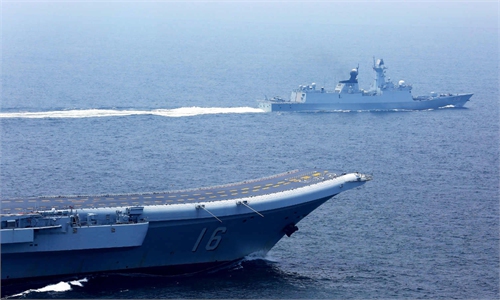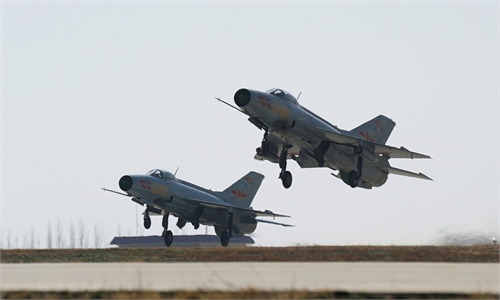Why is US repeatedly speculating over when mainland will reunify Taiwan militarily?: Global Times editorial

Gen. Mark Milley testifies before the Senate Arms Services Committee on his nomination to be chairman of the Joint Chiefs of Staff on Capitol Hill in Washington DC,the United States, on July 11, 2019.Photo:Xinhua
The US Chairman of the Joint Chiefs of Staff General Mark Milley said on Thursday during a congressional hearing that there was a low probability Beijing would try to take over the island of Taiwan militarily in the near-term. He said although Taiwan was still a core national interest of China, "there's little intent right now, or motivation, to do it militarily," according to Reuters. Milley also claimed a few days ago that crossing the Taiwan Straits and taking over an island the size of Taiwan is "an extraordinarily complex and difficult operation."
US senior military officials and the Congress have recently repeatedly talked about the possibility of the People's Liberation Army (PLA) taking over Taiwan by force. Admiral Phil Davidson who leads the US Indo-Pacific Command predicted in March that the mainland could attempt to take control of Taiwan "in the next six years." The US' intensifying attention on this issue has demonstrated Washington and the Taiwan Democratic Progressive Party (DPP) authorities' increasing anxiety over the possibility of the PLA's military actions.
It is well-known that whether the mainland will resort to force to take over Taiwan is first of all a political decision, and then a military issue. From a military perspective, the mainland undoubtedly has long had the ability to take over Taiwan militarily. Whether the mainland has made military preparation is a relative issue. What it will influence is how much an overwhelming advantage Beijing will have to eliminate resistance and reduce losses when taking over the island. As long as the political determination is formed, the military will obey and cooperate.
The US used to have an obvious military advantage in the Taiwan Straits, but the Chinese mainland's rapid development and military construction have dismantled the US' confidence in its advantage. The mainland's ability to resist US military intervention by then will be very real and feasible. The US has maintained its strategic ambiguity over whether it will militarily prevent the mainland from taking over Taiwan by force. Once a war breaks out in the Taiwan Straits, it will be a huge gamble for Washington if the US military ventures into it.
Now it is meaningless to discuss a war across the Taiwan Straits in detail. The US and Taiwan worry that the PLA is making serious preparations because they are aware that some of their provocative acts are increasing tensions in the Taiwan Straits. This has added to the mainland's reason to carry out practical preparations for military settlement of the Taiwan question. Even if the situation will not escalate to the mainland "liberating Taiwan" by force in the short term, the risk of serious military friction and confrontation in the Taiwan Straits is still increasing.
After all, the primary issue in Taiwan is political tension. The cross-Straits policy of the DPP authorities has become too malign to imagine in the past few years. Their words and deeds are completely hostile toward the mainland. They have placed themselves in a forefront position of the US' confrontational Indo-Pacific Strategy against the mainland. The DPP authorities are looking for trouble.
The tension in the Taiwan Straits brings worries, and even the US military frequently evaluates the situation there. Historical experiences tell us that many wars break out with no plan or little preparation, and were suddenly triggered under a highly tense situation.
It is hoped that the US can take real action to ease tensions in the Taiwan Straits. If it really doesn't want to see a war, it is more feasible for them to manage their own provocative words and deeds rather than calculating when and under what circumstances the mainland will resort to force.


